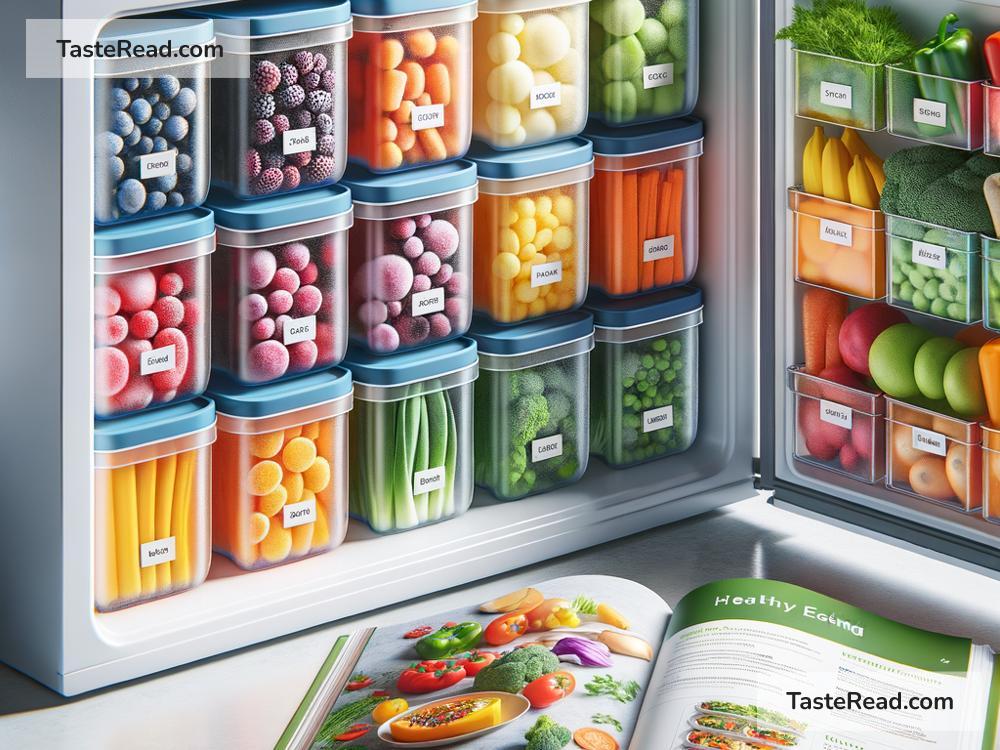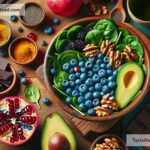How to Maintain Nutritional Quality in Frozen Foods
Frozen foods are popular because they are convenient, long-lasting, and can help reduce food waste. From frozen vegetables and fruits to pre-cooked meals, freezing preserves food and provides quick meal options for busy days. But one common concern is whether frozen foods lose their nutritional value. The good news is that freezing can help retain the nutrients in foods if done correctly. In this blog, we’ll discuss simple tips to ensure frozen foods maintain their nutritional quality.
Why Does Freezing Work?
Freezing is like pressing the “pause” button on food spoilage. It stops the growth of bacteria and slows down enzyme activity that causes food to decay. Unlike cooking or other processing methods, freezing preserves a lot of nutrients. For instance, vitamins like A, C, and folate stay in good condition for months when frozen properly.
However, not all frozen foods are created equal. To ensure your frozen foods stay nutrient-rich, you need to pay attention to how you freeze, store, and cook them. Let’s dive into some practical tips to maintain their nutritional quality.
Tips for Maintaining Nutritional Quality in Frozen Foods
1. Pick High-Quality Fresh Produce
The freezing process works best when you start with fresh, high-quality ingredients. For example, if you’re freezing vegetables or fruits, make sure they are ripe and in peak condition. Any bruised or damaged food could lose nutrients quickly—even when frozen.
2. Freeze Foods Quickly
The speed of freezing plays a big role in maintaining nutrition. Rapid freezing prevents large ice crystals from forming. Large ice crystals can damage the cell structure of food, leading to a loss of vitamins and nutrients. Foods should be frozen as quickly as possible after washing, chopping, or preparing them.
3. Blanch Vegetables Before Freezing
Blanching is key for preserving the color, texture, and nutritional value of vegetables. It involves boiling vegetables briefly (two to three minutes) and then plunging them into ice water to stop the cooking process. Blanching helps prevent the loss of vitamin C and keeps vegetables fresh while in storage.
4. Use Proper Packaging
Air exposure during freezing can lead to freezer burn, which damages food texture and causes nutrient loss. To avoid this, use airtight containers or freezer-friendly bags. Remove as much air as possible before sealing food. Vacuum-sealing machines are great for ensuring vegetables, fruits, meat, and other foods stay intact while frozen.
5. Avoid Refreezing
Refreezing food can lower its quality. Every time food is thawed, it loses nutrients, texture, and flavor. To prevent waste, freeze foods in smaller, portion-sized packages so you only take out what you need.
How Long Do Frozen Foods Last?
Frozen foods retain their nutrients well, but they aren’t meant to last forever. It’s good to know the recommended storage times for different types of food.
- Vegetables and fruits: Keep them frozen for up to 8 to 12 months for best quality.
- Meats and seafood: Store them for 3 to 6 months.
- Soups and cooked meals: Use them within 2 to 3 months for the freshest flavor and nutrients.
Label each package with the freezing date for easy tracking.
Cooking Frozen Foods Properly
How you cook frozen foods can affect their nutrients. For example, overcooking frozen vegetables can destroy vitamins like vitamin C. Instead of boiling vegetables for long periods, try steaming them for a few minutes or roasting them for added texture and flavor.
For frozen fruits, avoid soaking them in water as that can wash away nutrients over time. Instead, add them directly to smoothies, yogurts, or baked goods to keep their nutritional benefits intact.
Watch Out for Added Ingredients
Not all frozen foods are healthy. Some packaged meals, desserts, or snacks may contain excess salt, sugar, or preservatives that diminish the overall nutrition. Always check the label to ensure you’re purchasing minimally processed frozen foods with no artificial additives.
Benefits of Frozen Food
Frozen foods provide many advantages:
– Time-saving: You don’t have to clean, chop, or prepare vegetables when they’re pre-frozen.
– Long shelf life: You can store them for months without worrying about spoilage.
– Reduced waste: Freezing leftovers or seasonal produce helps save food that might otherwise go bad.
Closing Thoughts
Frozen foods are great for busy families, meal planners, and anyone who wants to enjoy fresh produce year-round. When you choose fresh ingredients, freeze them properly, and cook them the right way, you can ensure they stay nutrient-rich. Remember, freezing doesn’t degrade nutrients—it simply preserves them until the food is ready to eat.
So the next time you shop or prepare food to freeze, follow these simple steps to keep your meals healthy and delicious. Frozen foods can truly be a lifesaver, both for your schedule and for your health!
Do you have a favorite tip for freezing food or cooking frozen meals? Share it in the comments below!


